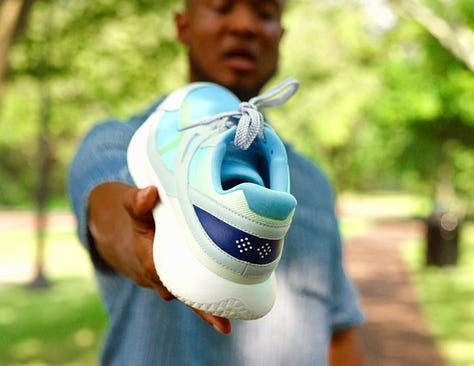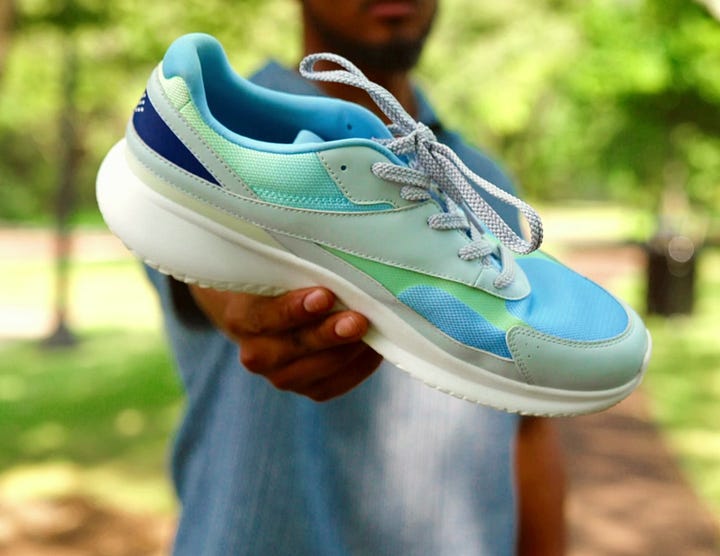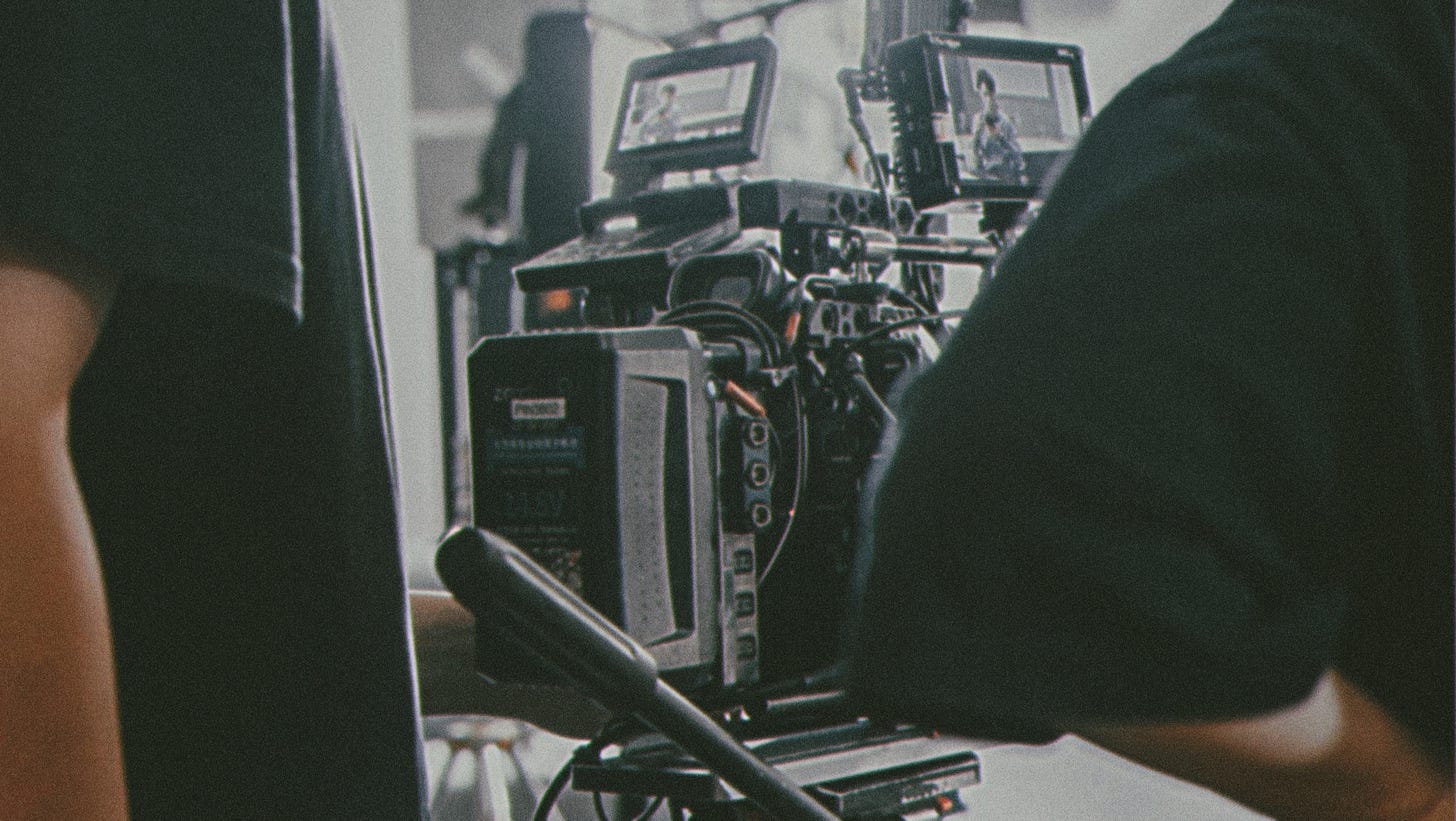The Scripts We Sell Ourselves
And the problem with a world full of main characters
There are few things more intoxicating than telling yourself that you're the main character. The plot centers you. The camera follows you. The narrative arc leads back to you, your belief system, and your fulfillment.
Or so you say.
Because you're not actually the main character—you're the director of your own indie film. You get to choose what happens next, not because you wield godlike power, but because you can pan the camera away as soon as a minor character shares a contradictory perspective.
You get to acknowledge how much you've grown and how far you've come, while thinking of the people you've lost touch with as static characters.
You get to think of yourself as "the one who got away" instead of acknowledging that the two of you were incompatible.
You get to label them a hater because it erases your contributions to your friendship's dysfunction.
And yet, too many indie films suffer from one common critique: the director is too close to the story to see it clearly.
“But they hurt me.”
Those four words drive the plot forward, but they create a painfully predictable story when left uninterrogated.
I've used them to justify the dissolution of friendships that didn't have to die. I've leveraged them to create over-simplified, emotionally satisfying solutions to complicated problems. When the dynamic of a relationship turns sour, casting myself as the "victim" feels easier than acknowledging the role that I played in our conflict.
The script writes itself:
I am reasonable;
They are unreasonable.
I am growing;
They are stuck.
I am the protagonist overcoming obstacles;
They are the obstacle I must overcome.
But every experienced screenwriter knows that the most compelling characters are the ones whose motivations make sense from their own perspective. Even the villain believes they're the hero of their own story. When we refuse to grant other people the same narrative complexity we demand for ourselves, we end up writing one-dimensional characters into a story that should be rich with human nuance.
The Editing Room
Any good director knows that the story is made in post-production. I could shoot hours and hours of raw footage—capturing every mundane conversation, every awkward pause, every moment of ambiguity—but the final cut determines what the audience sees, and more importantly, what they don't. The magic happens in the editing room, where scattered fragments of reality get transformed into something coherent, compelling, and emotionally resonant.
Memory works the same way, operating like an invisible film editor working around the clock in our minds. We don't just passively remember events as they happened; we actively edit them, sometimes subconsciously.
We splice together moments that support our preferred narrative while leaving contradictory evidence scattered on the cutting room floor of our consciousness.
Whether we know it or not, we are all skilled editors of our own stories. The question is: are we editing for truth, or are we editing for comfort?
When my wife and I moved into our first apartment together, I remember her fussing at me about dishes. What I edited out for years was the context: that I had been leaving dirty dishes in the sink for weeks, that she had asked me multiple times to clean up after myself, that she was managing household tasks that I wasn't even thinking about. In my director's cut, she was unreasonably angry—but when I rewind the tape and watch the raw footage, she was exhausted and trying to communicate a boundary.
But editing isn't the only way we misrepresent the people in our stories. Sometimes we cast them in roles they can never escape.
Casting Decisions
"They'll never change."
In every compelling story, the protagonist undergoes a dramatic transformation. They learn, they grow, they become someone new by the time the final scene rolls around. But supporting characters? They're often exactly who they were in Act One—defined by a few key traits, serving their narrative function, then written off.
This is how we cast some of the people in our personal stories, especially the ones we've lost touch with.
I've evolved.
I've learned from my mistakes.
I've grown more self-aware, more emotionally intelligent, more capable of healthy relationships.
But my fake friend from middle school? They're still a hater—the same judgmental person who made me feel small. Never mind the cruel things that their parents said to them the moment they walked through the door each day.
My short-tempered history teacher from high school? Still an intentionally cruel adult picking on a kid—never mind that they were a 24-year-old recent college graduate trying to figure out how to manage their emotions while surviving one of the most undervalued jobs in the world.
We grant ourselves the dignity of complexity and change while reducing our former friends, colleagues, and associates to their worst moments, most annoying habits, and most immature phases.
We assume we know exactly who they are now based on who they were then—as if people are somehow exempt from the same growth we congratulate ourselves for achieving.
But here's what's truly arrogant about this dynamic: it assumes growth only happens when we're there to witness it. It assumes we were the only ones carrying invisible burdens. It zooms in on our struggles while cropping everyone else's pain out of the frame.
The Hero's Journey (And Everyone Else's)
"There's only room for one hero in this story."
A self-assigned hero narrative is intoxicating because it reframes your flaws as virtues and your mistakes as necessary plot points. Every setback becomes character development. Every challenge becomes proof of your resilience. Every person who doubts you becomes evidence that you're destined for something greater.
And everyone else gets reduced to their function in your story. That friend who challenged your decision? They're the doubter you had to overcome. The colleague who got the promotion you wanted? They're evidence that the system is rigged, not that they might have been more qualified.
We become so invested in protecting our heroic arc that we start creating villain origin stories for people whose only crime was existing in ways that didn't serve our narrative. We need them to be wrong, shallow, or malicious—because if they're complex people with valid perspectives, then maybe our hero story is just one version among many equally legitimate accounts.
But here's what happens when you insist on being the only hero in the room: you end up surrounded by cardboard cutouts instead of real people. You mistake your edited highlight reel for documentary footage. You forget that every compelling story—even yours—is improved by recognizing that other characters have their own arcs, their own growth, their own heroic moments that have nothing to do with you.
The Director's Cut
The best directors practice self-awareness—they admit their limitations, acknowledge what they got wrong, and explain decisions that seemed brilliant at the time but look questionable in hindsight.
I wasn't always the hero in my own story. Sometimes I was the antagonist who convinced myself I was saving the day. Sometimes I was a supporting character who rewrote the script to center my own experience. And sometimes—perhaps most uncomfortably—I was just a person making imperfect decisions with limited information, no different from everyone else in the scene.
What would it look like to make better films about our lives?
First, we'd have to become comfortable with ensemble casts. Not every conversation, conflict, or outcome needs to center our experience. Sometimes we're the main character, sometimes we're comic relief, sometimes we're the cautionary tale. Great stories have room for multiple perspectives. Great people have the humility to recognize when they're not the focal point.
Second, we'd need to resist the urge to edit out our contradictions. The moments when we were hypocritical, petty, or wrong don't ruin our story—they make it human. Audiences connect with flawed characters who grow, not perfect protagonists who never make mistakes.
Third, we'd have to grant other people the same narrative grace we demand for ourselves. That person who hurt you? They were probably dealing with their own invisible struggles. That friend who "changed"? They were probably just becoming more themselves. That colleague you resent? They might be fighting battles you know nothing about.
It's easy to think of yourself as the protagonist. It's far more difficult to be a good person to share the screen with. A lot of people are writing one-dimensional movies about their lives. We get so focused on our character development that we reduce everyone else to plot devices.
But the best stories—the ones that stick with us, the ones that change how we see the world—are the ones where every character feels real, every perspective has merit, and the complexity of the human experience gets honored rather than simplified.
Maybe it's time to step back from the director's chair. Maybe it's time to let other people have their close-ups. Maybe it's time to admit that the most interesting stories are the ones where nobody gets to be the main character all the time—and everyone gets to be human.
The camera doesn't always have to follow you. Sometimes the most honest stories are told from the margins.
I am deeply thankful for your support. If my words have helped you in some way, please consider sharing them with others. If you have the means to do so, you could also support my work directly by buying me a coffee.
About the writer:
I’m Michell—I’m a 35-year-old father, husband, and writer. I’m thankful that you’ve taken the time to read my work. Any support you feel led to give in the form of a like, comment, repost, or purchase is deeply appreciated.
You can purchase my book, Eyes On The Road, here.
You can purchase my art, some of which is displayed below, here.
Also, I’d like to share a new project, years in the making—I am currently selling pre-orders of MY VERY FIRST SHOE.
This is one of my three childhood dreams, and it actually happened! (I also wanted to be in the NBA, but I’m 5’10.” And my dreams of becoming a rap superstar seem to be on hold, for this lifetime.)





I'm excited to introduce you to the RIVU performance trainer—a running shoe engineered to move with you, combining remarkable durability, responsive cushioning, and a design-forward aesthetic built to perform wherever life takes you.
The RIVU is designed by the same team that created designs for Yeezy during Kanye's transition from Adidas. The quality speaks for itself.
If you're looking for a stylish, durable running shoe that moves with you, I'd love to have your support.
flowlikerivu.com




This is such a good piece. We too often and too quickly categorize people as either supporting you and your dream or "haters". Where is the room for constructive criticism, for growth, for someone to shape and form you while you also shape and form them?
Great piece, thank you. The trainer ad at the end was odd, though.